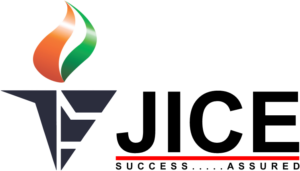UPSC CURRENT AFFAIRS – 02nd April 2025
Tackling the disinformation threat in India
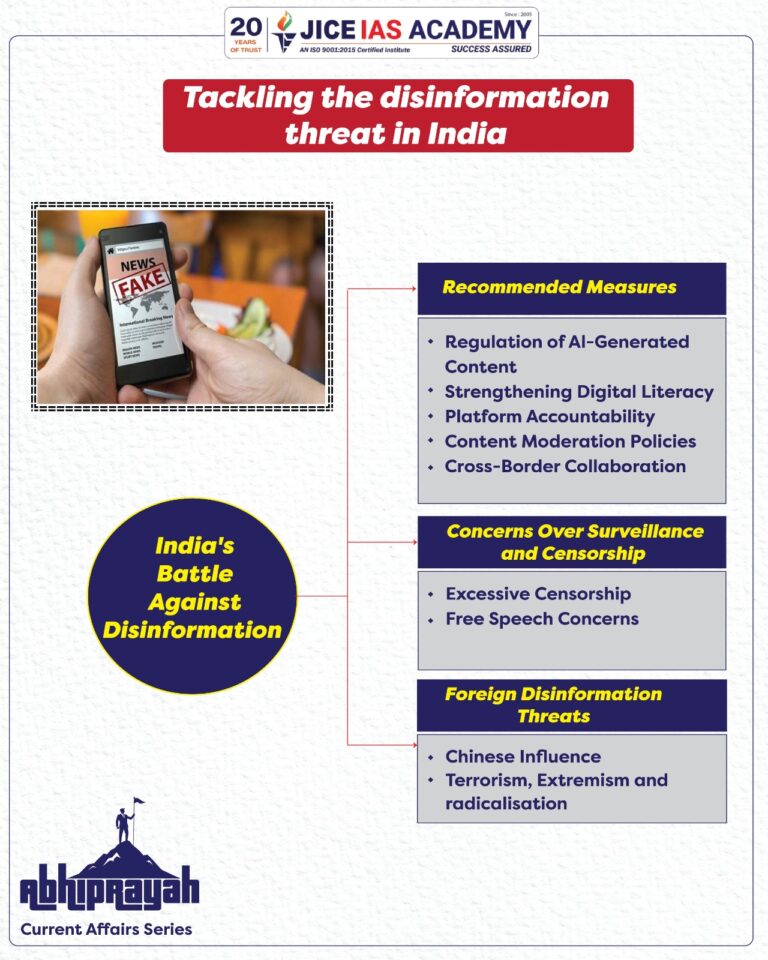
Why in News?
The World Economic Forum’s (WEF) Global Risks Report 2025 highlights misinformation and disinformation as the most significant short-term global threat.
Introduction
- The World Economic Forum’s (WEF) Global Risks Report 2025 has highlighted misinformation and disinformation as the most significant short-term global threat.
- The report defines a global risk as an event that can adversely affect a substantial portion of the population, global GDP, and natural resources.
- The rapid proliferation of AI-generated content, algorithmic biases, and deep societal divides has made it increasingly difficult to distinguish facts from fabricated narratives.
The Crisis of Information Disorder
- India, with an expanding digital population of over 900 million Internet users, is particularly vulnerable to disinformation and manipulated narratives.
- The country’s diverse political and social landscape creates a fertile ground for the spread of falsehoods, influencing voters and economic decisions.
- This is not just a political challenge but also an economic and social one, leading to consumer boycotts, economic disruptions, and international tensions.
- Adding to this crisis, trust in legacy media has significantly declined, with social media emerging as the primary news source.
- As a result, many users unknowingly forward unverified information, assuming it to be credible because it originates from familiar sources.
- Political entities and non-state actors exploit this trust deficit to spread propaganda, further fueling polarization and social unrest.
India’s Battle Against Disinformation
- As a rising global power, India has faced foreign disinformation threats, particularly from China.
- The 2017 Doklam standoff prompted India to ban over 300 Chinese apps, including TikTok, to curb external interference.
- According to a study by the Indian School of Business and the CyberPeace Foundation, 46% of disinformation in India is political, followed by 33.6% on general issues and 16.8% on religious topics.
- Platforms such as Weibo, controlled by China, have been instrumental in distorting India’s global image.
- Additionally, concerns have arisen over Meta’s potential decision to end fact-checking partnerships, similar to what was observed in the United States.
- With almost 400 million Facebook and 500 million WhatsApp users, India represents one of the largest digital markets, making it crucial to implement effective regulatory mechanisms.
Recommended Measures
- The Global Risks Report 2025 outlines several key strategies to mitigate the risks posed by disinformation:
- Regulation of AI-Generated Content – Establishing supervisory boards and AI councils to monitor Generative AI practices and algorithmic biases.
- Strengthening Digital Literacy – Public awareness campaigns, such as the Reserve Bank of India’s Financial Literacy Campaign, to enhance critical thinking skills.
- Platform Accountability – Implementing risk assessments for very large online platforms (VLOPs), similar to the EU’s Digital Services Act.
- Cybersecurity Research – Increasing investment in cybersecurity innovations to counteract deepfakes and AI-driven misinformation.
- Content Moderation Policies – Enforcing strict non-discrimination rules and ensuring funding transparency for online advertisements to prevent manipulated narratives.
- Cross-Border Collaboration – Establishing global coalitions to combat foreign information manipulation and interference (FIMI).
Concerns Over Surveillance and Censorship
- While stringent regulations are necessary to combat misinformation, the WEF report also warns against excessive censorship and surveillance.
- Misuse of regulatory policies could lead to restrictions on free speech and potential authoritarian control over digital spaces. Thus, any intervention must balance security concerns with democratic safeguards.
Conclusion
- Misinformation and disinformation are not just technological challenges but tests of global democratic values.
- As the world’s largest democracy, India must take a leading role in promoting digital resilience by implementing comprehensive policies that counteract disinformation while upholding freedom of expression.
- The real challenge is not just fighting falsehoods but ensuring that India’s unity in diversity remains intact in the face of rising digital polarization.
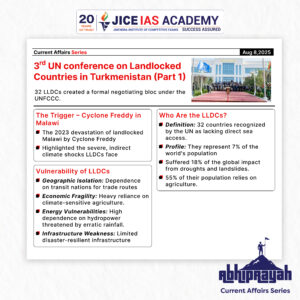
3rd UN conference on landlocked countries
UPSC CURRENT AFFAIRS – 08th August 2025 Home / 3rd UN conference on landlocked countries Why in News? At the
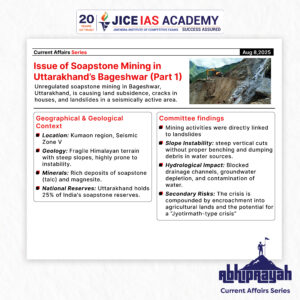
Issue of soapstone mining in Uttarakhand’s Bageshwar
UPSC CURRENT AFFAIRS – 08th August 2025 Home / Issue of soapstone mining in Uttarakhand’s Bageshwar Why in News? Unregulated
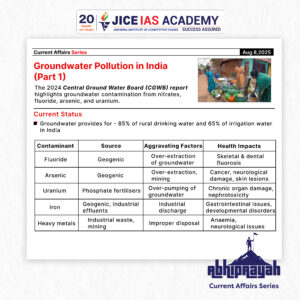
Groundwater Pollution in India – A Silent Public Health Emergency
UPSC CURRENT AFFAIRS – 08th August 2025 Home / Groundwater Pollution in India – A Silent Public Health Emergency Why
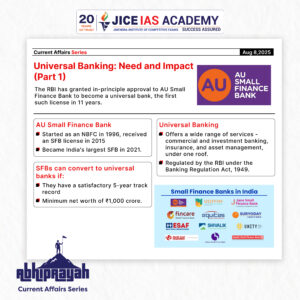
Universal banking- need and impact
UPSC CURRENT AFFAIRS – 08th August 2025 Home / Universal banking- need and impact Why in News? The Reserve Bank
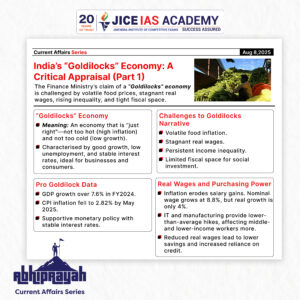
India’s “Goldilocks” Economy: A Critical Appraisal
UPSC CURRENT AFFAIRS – 08th August 2025 Home / India’s “Goldilocks” Economy: A Critical Appraisal Why in News? The Finance
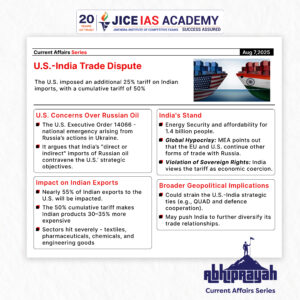
U.S.-India Trade Dispute: Trump’s 50% Tariffs and India’s Oil Imports from Russia
UPSC CURRENT AFFAIRS – 07th August 2025 Home / U.S.-India Trade Dispute: Trump’s 50% Tariffs and India’s Oil Imports from
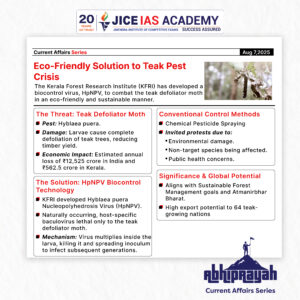
Eco-Friendly Solution to Teak Pest Crisis: KFRI’s HpNPV Technology
UPSC CURRENT AFFAIRS – 07th August 2025 Home / Eco-Friendly Solution to Teak Pest Crisis: KFRI’s HpNPV Technology Why in
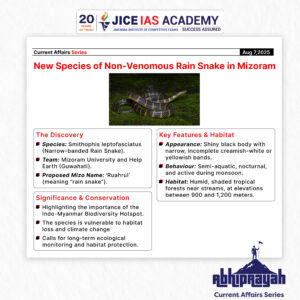
New Species of Non-Venomous Rain Snake Discovered in Mizoram
UPSC CURRENT AFFAIRS – 07th August 2025 Home / New Species of Non-Venomous Rain Snake Discovered in Mizoram Why in


